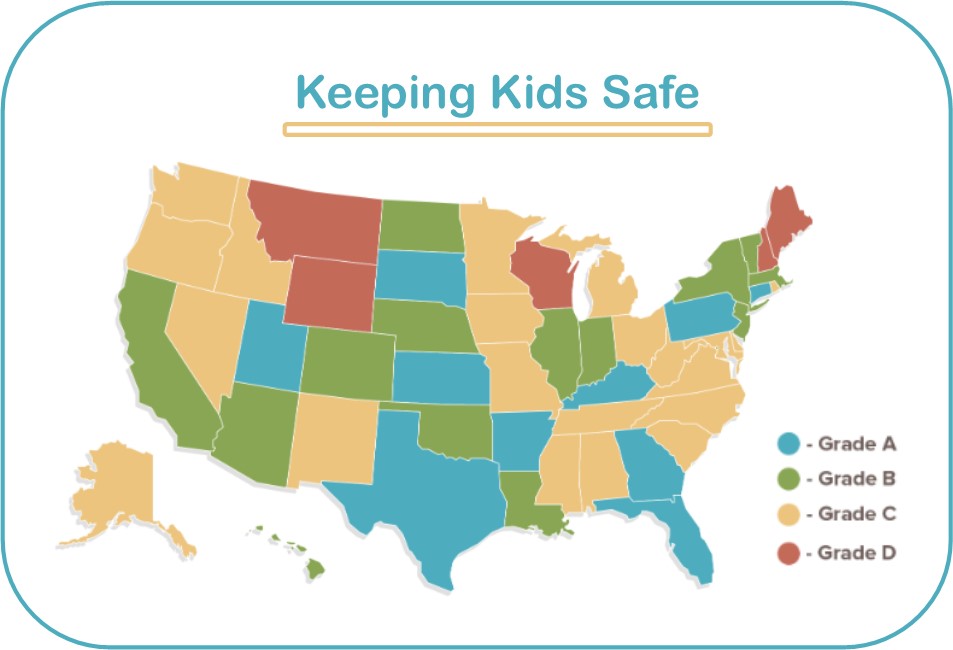Connecticut Earns High Ranking in Internet Safety for Kids
/Connecticut is seen as having among the best laws on the books to protect children using the internet, according to a new analysis.
Nine states – including Connecticut – earned an “A” when a series of factors were rated by the home safety and security website SafeWise. The categories included in the analysis were: laws addressing cyberbulling or online harassment, legal consequences for online harassment, schools discipline cyberbullying, incudes discipline for off-campus offenses, laws address sexting, misdemeanor penalties for sexting, and felony penalties for sexting. Connecticut’s answer to all but the last category was “yes.”
The states earning an “A” with Connecticut were Arkansas, Florida, Georgia, Kansas, Pennsylvania, South Dakota, Texas and Utah.
Regarding cyberbullying, the site noted that almost 34% of kids age 12–17 have been cyberbullied at some point in their life, and 11.5% have bullied someone else online. Cyberbullying is any aggressive, threatening, or mean-spirited activity conducted via electronic communication (email, social media posts, text messages, etc.). Girls are more likely to be the victims of cyberbullying, and more boys admit to bullying others online.
Inappropriate content is one of the most common online threats that kids encounter, the site points out. Everything from vulgar language and hate speech to graphically violent or sexual images can have a harmful effect on an impressionable child. Over 55% of tweens (kids age 10–12) have been exposed to violent content on the internet, and nearly 60% have come across sexually explicit words or images, according to the data cited.
Another harmful threat comes from adults who use the internet to entice children for sexual or other types of abusive exploitation are considered online predators. The site indicates that girls make up the majority (78%) of child victims—while the majority (82%) of online predators are male. And 98% of online predators have never met their child targets in real life.
To grade each state, SafeWise looked at laws for both sexting and cyberbullying. Points were assigned to states based on the types of laws currently on the books and the consequences for violating those laws. If a state has a law proposed, partial points were granted. School policies and consequences were also factors. Letter grades were determined based on the total points, with higher points earning higher grades. The site also suggests ways to protect children using the internet, and to safeguard them from the effects of bullying.
































